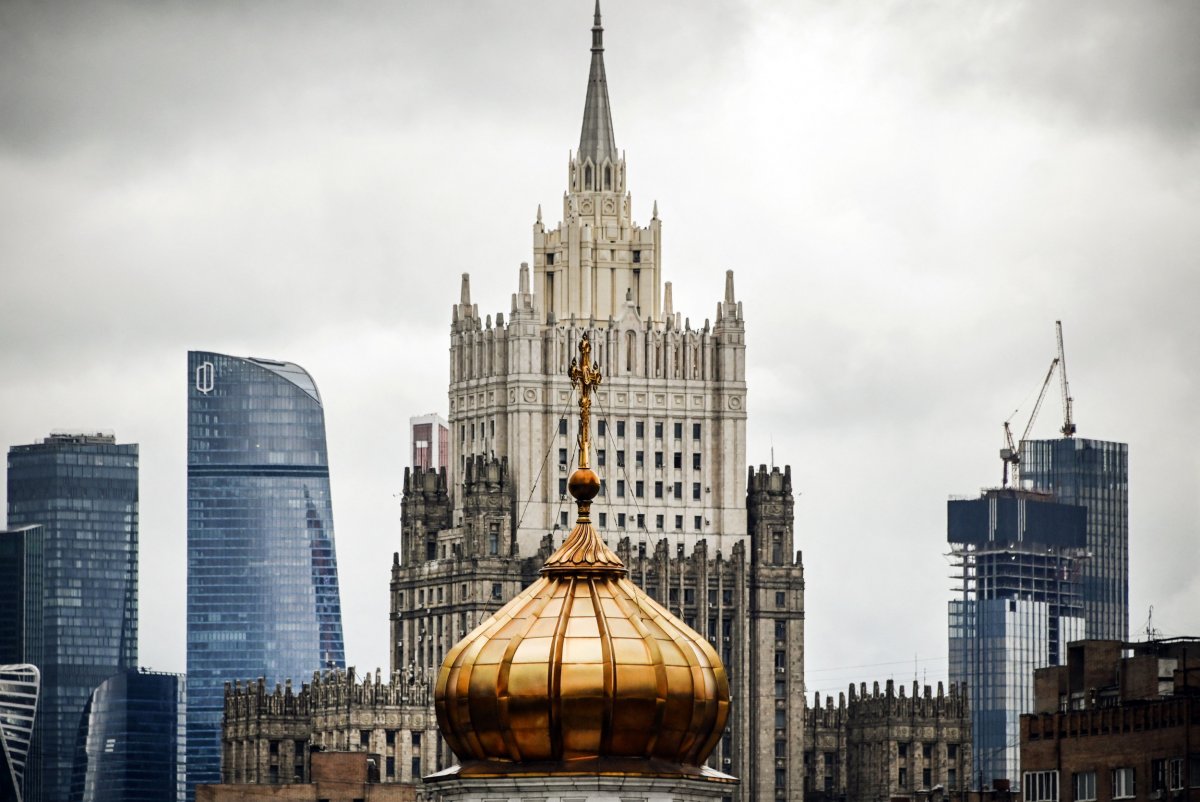In 48 hours, Russia will face default, a threat that has been looming since the beginning of the war in Ukraine on February 24.
The sanctions imposed by the West on Russia following the invasion of Ukraine have cut off Moscow from the global financial system, frozen its over $600 billion of reserves abroad and banned trading of new Russian bonds.
The only way Russia has managed to avoid defaulting until now has been thanks to a special U.S. Treasury license, which allowed international bond holders to still receive payments from Moscow.
So far, Russia has managed to meet all its payment obligations but on May 25 the U.S. Treasury waiver formally expired, leaving Moscow unable to process such transactions. The U.S. Treasury has made it clear they do not intend to renew it.

On May 27, interest payments on Russia's international bonds, half of which are held by foreign investors, will be due. Another payment will be due across two Eurobonds on June 23.
In total, the country will still have almost $2 billion in external sovereign bonds to repay before the end of the year, Reuters reports.
This means Russia will risk facing default for the first time since 1998.
But what does this mean for Russia now?
The Consequences Of a Russian Default
If Russia defaults, it will be unable to regain access to the international borrowing markets—from which it is already blocked by Western sanctions—until creditors are fully repaid and all legal cases stemming from defaulting are resolved.
It will also, in the short term, create problems with trade partners who have not sanctioned Russia since the beginning of the war.
"I think the U.S. Treasury's focus here [in not renewing the waiver] is to create some problems for Russia, from a real-economy perspective. If Russia goes off on default, then there will be some consequences," Kaan Nazli, a portfolio manager at Neuberger Berman, who holds some Russian foreign bonds, told Newsweek.
"If you were a Chinese or an Iraqi bank or insurance company that is going to lend to or insure a Russian entity, you might have some internal rules about how to consider a country that is on defaults and some restrictions towards that.
"So even though you are from a country that hasn't actually imposed sanctions on Russia, you're going to have to react to the new situation."
In the long-term, Russia will likely face higher borrowing rates because having faced a default it would be a less reliable partner on the markets.
Western investors are not worried about being harmed by Russian inability to repay its debts in the future, said Nazli. Mostly because they have had quite some time to get used to it. For Western markets, the prospect of a Russian default is "very much old news," said Nazli.
"Clearly it was only a matter of time before Russia was going to default," the portfolio manager said. "From February 24th onwards, Russia has become an uninvestable country from a financial markets perspective, at least from the Western financial market perspective."
What Happens Next?
There's evidence that Russia has tried to avoid default.
On May 20, Russia's finance ministry rushed in two payments, $71.25 million for a dollar-denominated bond and €26.5 million for euro-denominated bonds due on May 27, according to Reuters.
But for how long can Russia stave off default?
It's only a matter of time, according to Nazli, who says the default can be deleted but is inevitable.
"They have two bonds that have payments on June 23 and if there's no extension from the U.S. side, then these get delayed," Nazli explained. "The 30-day grace period is triggered and then at the end of the 30-day grace period, which I think would be the 22nd of July or so, at the end of July, you would have a default situation."
The Russian Ministry of Finance said they could resort to repaying their debts in rubles, but default would still be unescapable, as the legal requirements of the incoming foreign bonds to be repaid dictate payment in dollars.
Newsweek has reached out to Russia's Ministry of Finance for comment.
Uncommon Knowledge
Newsweek is committed to challenging conventional wisdom and finding connections in the search for common ground.
Newsweek is committed to challenging conventional wisdom and finding connections in the search for common ground.
About the writer
Giulia Carbonaro is a Newsweek Reporter based in London, U.K. Her focus is on U.S. and European politics, global affairs ... Read more
To read how Newsweek uses AI as a newsroom tool, Click here.








